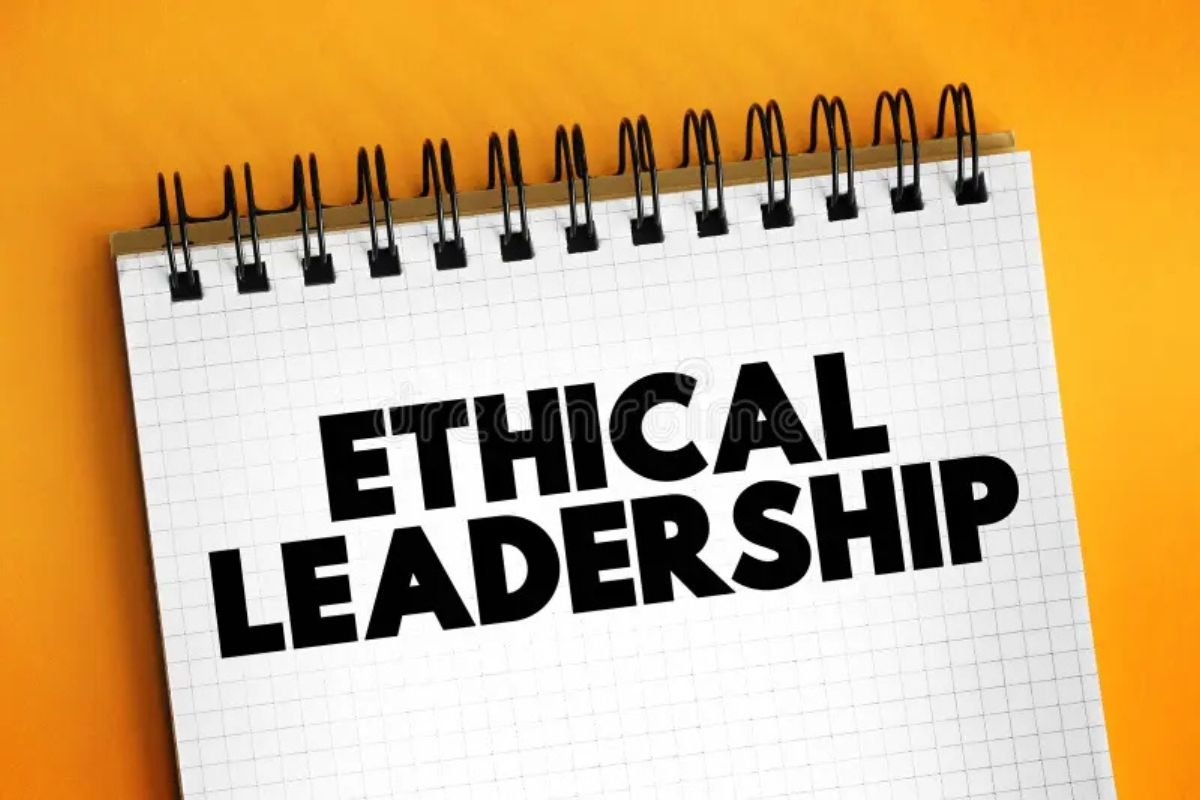In an era where corporate integrity is under increasing scrutiny, ethical leadership is no longer just a moral obligation—it is a strategic imperative. A 2023 survey by Edelman Trust Barometer found that 78% of Indian consumers prefer to buy from companies that align with their values, reflecting a rising demand for transparency, fairness, and accountability in business practices. At the same time, regulatory frameworks such as India’s Companies Act (2013) and mandatory CSR provisions have pushed organizations to integrate ethics into their core strategies.
Yet, many Indian businesses face a complex challenge: how to balance profitability with corporate responsibility without compromising either. Ethical leadership is not just about compliance—it is about building a sustainable, high-performing organization that fosters trust among stakeholders, strengthens brand reputation, and secures long-term financial success.
This article explores the business case for ethical leadership in India 2025, delves into the key challenges that leaders face, and highlights innovations and best practices that forward-thinking organizations are implementing. By leveraging real-world examples, actionable insights, and up-to-date data, we will provide a roadmap for Indian business leaders looking to navigate the intersection of ethics and profitability in a rapidly evolving corporate landscape.
Ethical Leadership in India 2025: A Strategic Imperative for Businesses
Ethical leadership in India 2025 is not just a virtue—it is a competitive advantage. Companies that integrate corporate responsibility into their business models are seeing tangible benefits, from stronger consumer loyalty to increased investor confidence. In India, where regulatory frameworks are tightening and consumer awareness is at an all-time high, businesses that prioritize ethics are positioning themselves for long-term success.
Evolving Consumer Expectations: The Rise of Conscious Consumerism
Indian consumers are becoming increasingly discerning, favoring brands that align with their values. A 2023 Nielsen survey found that 64% of Indian consumers are willing to pay a premium for products from companies with strong ethical commitments. This shift is driven by heightened awareness of environmental sustainability, fair labor practices, and corporate transparency.
Major brands are responding to this trend by embedding ethical considerations into their operations. Tata Group, for instance, has long championed ethical business practices, earning widespread trust and customer loyalty. Meanwhile, companies that fail to uphold ethical standards—such as those embroiled in environmental or labor-related scandals—have faced severe reputational damage, eroding consumer confidence and market share.
Regulatory and Legal Landscape: Strengthening Corporate Accountability
India has introduced stringent corporate governance policies to enforce ethical business practices. Key regulations include:
- The Companies Act (2013): Mandates Corporate Social Responsibility (CSR) for firms exceeding specified revenue and profitability thresholds, requiring them to allocate at least 2% of their net profits toward social initiatives.
- SEBI’s ESG Reporting Requirements: Listed companies must disclose their Environmental, Social, and Governance (ESG) metrics under the Business Responsibility and Sustainability Report (BRSR) framework. This has made transparency and ethical governance crucial for investor relations.
- The Prevention of Corruption Act (2018): Strengthens anti-bribery provisions and holds businesses accountable for unethical dealings.
With regulators tightening compliance measures, businesses that proactively integrate ethical policies gain a strategic edge, mitigating legal risks while enhancing investor confidence.
Financial Impact of Ethical Leadership: Profitability Through Trust and Reputation
Contrary to the notion that ethical practices are a financial burden, research consistently shows that companies prioritizing governance and sustainability outperform their peers. Ethical leadership contributes to:
- Stronger Brand Equity: Companies recognized for integrity enjoy higher customer retention and brand loyalty.
- Increased Investor Confidence: Ethical companies attract long-term investors who prioritize sustainability and risk mitigation.
- Operational Resilience: Transparent and ethical decision-making reduces legal disputes, reputational risks, and employee turnover.
A compelling example is Infosys, one of India’s most respected IT firms. With a steadfast commitment to corporate governance, ESG compliance, and employee welfare, Infosys has built a reputation for integrity, translating into strong financial performance and global investor confidence. Its ethical leadership has played a crucial role in sustaining high employee morale, ensuring regulatory compliance, and securing long-term profitability.
The business case for ethical leadership in India 2025 is clear—companies that embrace responsible practices are not only future-proofing their operations but also gaining a competitive edge in an increasingly conscious market. As consumer expectations evolve and regulations tighten, businesses must recognize that ethical leadership is not just about compliance—it is about sustained profitability and corporate longevity.
Overcoming Barriers to Ethical Leadership in India 2025
While ethical leadership presents clear advantages, many Indian businesses struggle to fully integrate ethical principles into their corporate strategies. The primary hurdles include short-term profit pressures, lack of accountability, and deep-rooted cultural resistance. Addressing these challenges requires a fundamental shift in mindset, governance, and leadership approach.
The Profitability Dilemma: Short-Term Gains vs. Long-Term Ethical Goals
Many businesses face intense market competition and shareholder expectations, often prioritizing short-term profitability at the expense of ethical integrity. The temptation to cut corners—whether through exploitative labor practices, tax evasion, or environmental negligence—can be strong, especially in industries with tight margins.
- Case in Point: The IL&FS Financial Scandal (2018) – Infrastructure Leasing & Financial Services (IL&FS), once a trusted name in India’s financial sector, collapsed under the weight of unethical financial practices, including accounting fraud and fund mismanagement. The short-term drive to inflate profits led to long-term disaster, resulting in government intervention, regulatory scrutiny, and a loss of investor trust.
- Lesson: Businesses that prioritize ethical governance and transparency may face slower short-term growth but achieve sustainable profitability and investor confidence over time.
Lack of Accountability and Transparency: A Persistent Corporate Challenge
Despite India’s growing regulatory framework, corporate governance lapses and weak whistleblower protection mechanisms continue to pose significant challenges. Many Indian companies still lack robust oversight structures, enabling unethical behavior to go unchecked.
- High-Profile Example: The NSE Co-Location Scam (2022) – The National Stock Exchange (NSE) was embroiled in a major governance failure when it was revealed that certain brokers received preferential access to high-frequency trading servers, giving them an unfair advantage. This scandal exposed deep-rooted governance flaws in one of India’s largest financial institutions.
- The Whistleblower Dilemma: Many employees fear retaliation for reporting unethical practices. While India has whistleblower protection laws, their enforcement remains weak, discouraging transparency within organizations.
How to Overcome This?
- Strengthening internal corporate governance policies and independent oversight committees.
- Implementing strong whistleblower protection frameworks to encourage employees to report unethical behavior without fear.
- Leveraging technology (AI, blockchain) for real-time monitoring and fraud detection.
Cultural and Organizational Resistance: The Mindset Shift Required
Many Indian businesses, particularly family-run enterprises and legacy corporations, operate on traditional business philosophies, where ethical considerations may take a backseat to growth and legacy preservation. Convincing leadership to adopt modern ethical principles can be challenging.
- Key Barriers:
- Hierarchical decision-making that discourages questioning authority.
- A compliance-driven (rather than values-driven) approach to ethics.
- Reluctance to adopt transparency measures due to fear of regulatory scrutiny.
- Case in Point: The Transformation of the Mahindra Group – Unlike many traditional Indian conglomerates, Mahindra & Mahindra successfully integrated ethical leadership into its corporate DNA. Under Anand Mahindra’s leadership, the company prioritized ESG initiatives, employee welfare, and ethical governance, proving that values-driven leadership does not hinder profitability but enhances it.
How to Overcome Cultural Resistance?
- Leadership Commitment: Ethical transformation must start at the top, with CEOs and board members actively championing ethical practices.
- Embedding Ethics in Organizational Culture: Conducting ongoing ethics training, integrating ethical KPIs into performance reviews, and recognizing leaders who exemplify integrity.
- Engaging the Next Generation of Leaders: Many younger professionals demand ethical workplaces—leveraging this generational shift can drive broader cultural change.
Implementing ethical leadership in India 2025 requires overcoming deep-rooted challenges, including profit-driven decision-making, governance gaps, and cultural inertia. However, companies that address these issues head-on—by prioritizing long-term sustainability, strengthening accountability frameworks, and fostering a culture of integrity—will emerge as leaders in India’s evolving business landscape.
Innovative Strategies for Embedding Ethical Leadership in India 2025
As Indian businesses navigate an increasingly complex regulatory and ethical landscape, innovation is playing a crucial role in fostering transparency, accountability, and responsible leadership. Forward-thinking organizations are leveraging technology, leadership development programs, and strategic CSR initiatives to embed ethical principles into their corporate DNA.
Technology-Driven Transparency: The Role of AI, Blockchain, and Data Analytics
Digital transformation is reshaping corporate governance by enhancing transparency and reducing fraud. Cutting-edge technologies like artificial intelligence (AI), blockchain, and data analytics are helping companies proactively monitor ethical compliance, ensuring real-time oversight of operations.
- AI for Governance: AI-driven compliance tools can detect anomalies in financial transactions, identify fraud risks, and ensure adherence to corporate governance policies.
- Blockchain for Supply Chain Integrity: Blockchain enables tamper-proof record-keeping, ensuring ethical sourcing and compliance with labor and environmental standards.
- Example: Reliance Retail is exploring blockchain-based supply chain solutions to enhance transparency in supplier transactions and prevent unethical sourcing practices.
- Data Analytics for Ethical Decision-Making: Companies are using advanced analytics to monitor ESG (Environmental, Social, and Governance) performance, helping them align with investor expectations and regulatory requirements.
Ethical Leadership Development Programs: Nurturing a Culture of Integrity
To build a sustainable foundation for ethical leadership, Indian corporations are investing in leadership development programs that instill values-driven decision-making at all levels of management.
- Tata Group’s Ethical Leadership Model: Tata Group, renowned for its integrity-driven business approach, has institutionalized ethics training through the Tata Code of Conduct and leadership development programs that emphasize:
- Ethical decision-making in complex business environments.
- Long-term value creation over short-term financial gains.
- Transparency and stakeholder engagement.
- Infosys’ Leadership Development Initiatives: Infosys integrates ethics and compliance training into its executive programs, ensuring that leaders at all levels prioritize corporate responsibility alongside profitability.
By embedding ethical principles into training curriculums, performance evaluations, and executive decision-making, these organizations are future-proofing their leadership against ethical lapses.
Corporate Social Responsibility (CSR) as a Strategic Tool
Indian businesses are moving beyond traditional CSR models, integrating corporate responsibility into core business strategies to drive long-term profitability while addressing social and environmental challenges.
- Strategic CSR vs. Compliance-Driven CSR: Rather than treating CSR as a regulatory checkbox, leading firms are leveraging it for brand differentiation, customer loyalty, and long-term value creation.
- ITC’s Sustainability-Driven Profitability:
- ITC Limited, a leader in FMCG and agribusiness, has embedded sustainability at the core of its operations.
- The ‘ITC Mission Sunehra Kal’ program focuses on water conservation, afforestation, and rural livelihoods, benefiting over 4 million people while strengthening ITC’s brand reputation.
- ITC’s commitment to carbon neutrality and water positivity has enhanced investor confidence and profitability, proving that corporate responsibility can drive business success.
Innovative companies in India are redefining ethical leadership by integrating technology, leadership development, and strategic CSR into their corporate frameworks. Businesses that adopt tech-driven transparency, invest in ethical leadership, and align CSR with long-term goals will gain a competitive edge in India’s evolving corporate landscape.
Actionable Strategies for Business Leaders
As Indian businesses embrace ethical leadership, the role of business leaders becomes critical in driving this transformation. Ethical leadership is not a one-time effort but a continuous commitment that must be embedded in every aspect of corporate strategy. The following actionable strategies can help leaders navigate this shift while maintaining sustainable profitability.
Embedding Ethics in Corporate Strategy
Business leaders must proactively align corporate goals with ethical practices, ensuring that profitability does not come at the expense of responsibility. Here are practical steps to ensure ethics are ingrained in the business strategy:
- Define Ethical Standards Across All Operations: From supply chains to marketing strategies, businesses should establish clear ethical guidelines for all facets of the organization.
- Example: A company in the textile industry might implement strict sourcing policies to ensure fair wages and safe working conditions across its supply chain.
- Incorporate ESG (Environmental, Social, and Governance) Objectives: ESG factors must be incorporated into corporate objectives and become part of the company’s long-term growth strategy.
- Example: A company might target net-zero emissions by 2030 as part of its sustainable growth strategy, ensuring it aligns financial performance with environmental responsibility.
- Ethics in Decision-Making Frameworks: Ethical considerations should be embedded in decision-making frameworks used by senior leadership, ensuring that values drive actions alongside financial metrics.
Building a Culture of Integrity
Business leaders must create a culture of integrity where ethical decision-making is the norm. The leadership team plays a key role in shaping the organization’s culture through actions, communication, and policies:
- Model Ethical Behavior at the Top: CEOs and senior leaders must set the tone at the top by demonstrating unwavering commitment to ethical behavior. They should lead by example in their decisions, communications, and interactions with stakeholders.
- Establish Strong Accountability Mechanisms: Implement internal controls, ethics committees, and auditing systems that ensure transparency and hold leaders accountable for ethical behavior across the organization.
- Foster Ethical Leadership at All Levels: Empower managers and team leaders to lead by example. Invest in leadership development programs to instill a sense of ethical responsibility across all levels of the organization.
Engaging Stakeholders in Ethical Transformation
Ethical transformation requires the active involvement of investors, customers, and employees. Business leaders must engage these groups to ensure that ethical considerations permeate every stakeholder interaction:
- Investors: Shareholders are increasingly prioritizing ESG performance when making investment decisions. Leaders should engage investors in ethical discussions and ensure that the company’s commitment to ethics aligns with investor interests.
- Example: The Aditya Birla Group integrates ESG performance in its investor relations, ensuring transparency and fostering trust with shareholders.
- Customers: Today’s consumers want to align their purchases with brands that prioritize ethics and social responsibility. Businesses should communicate their ethical values clearly to consumers and ensure that products meet ethical standards.
- Example: Dabur India emphasizes its commitment to sustainable sourcing and ethical product development, which resonates with its conscious consumer base.
- Employees: Ethical leadership also means investing in employee well-being, providing safe workplaces, fair wages, and opportunities for growth. Employees are more likely to buy into the company’s mission when they feel respected and valued.
- Employee Engagement Initiatives such as training on ethical decision-making and involving employees in CSR activities can further strengthen the ethical culture.
Measuring and Communicating Ethical Success
To ensure ethical practices are delivering value, businesses must measure and report their progress regularly. Key performance indicators (KPIs) and frameworks can help track ethical success and communicate it to stakeholders:
- Establish Clear Ethical Metrics: Companies should define specific ethical KPIs, such as employee satisfaction, supply chain compliance, carbon footprint reduction, and stakeholder engagement.
- Regular Reporting and Transparency: Businesses must publish annual reports or sustainability reports detailing their ethical achievements and challenges, maintaining transparency and trust.
- Example: Mahindra Group’s Sustainability Report outlines its efforts in areas like renewable energy, gender equality, and community welfare, offering stakeholders a transparent view of its ethical commitments.
- Third-Party Certifications and Audits: Obtaining third-party certifications (e.g., ISO 14001 for environmental standards or SA8000 for social accountability) and conducting audits can help businesses validate their ethical claims and gain credibility.
Business leaders in India can embed ethics into corporate strategy by focusing on long-term sustainability and fostering a culture of integrity. Engaging stakeholders—investors, customers, and employees—ensures that ethical transformation becomes a company-wide initiative. By measuring and communicating ethical success, leaders can ensure transparency and accountability, driving both business success and positive societal impact.
Charting the Path Forward: Embracing Ethical Leadership for Long-Term Success
As India’s business landscape becomes increasingly competitive and complex, ethical leadership is no longer a luxury—it is a necessity. Indian business leaders must adopt a forward-thinking, responsible approach that not only prioritizes profitability but also builds lasting value for society and the environment. By embracing ethical leadership, businesses will be better equipped to navigate challenges, capitalize on emerging opportunities, and foster trust with consumers, investors, and employees.
Now is the time for leaders to act. Invest in ethical governance, implement innovative technologies, and engage stakeholders in driving change. The businesses that take the lead in ethical transformation will define the future of India’s economy and become the leaders of tomorrow.
Building a Resilient, Sustainable Business Through Ethical Leadership
Ethical leadership in India 2025 is not simply about avoiding legal pitfalls or meeting compliance standards—it is about building a resilient, sustainable, and respected business that thrives over the long term. In today’s rapidly changing world, consumers, investors, and employees expect more from organizations. They seek businesses that demonstrate integrity, accountability, and social responsibility in every aspect of their operations. Ethical leadership serves as the foundation for a company that can weather market shifts, adapt to new regulatory landscapes, and continue to grow while maintaining a positive impact on society.
Business leaders in India have a unique opportunity to lead the charge in transforming corporate culture and aligning business goals with broader societal needs. The choice is clear: embrace ethical leadership as a core business strategy, and the rewards will be substantial, not just in financial returns, but in creating a legacy of integrity and trust that endures for generations.






